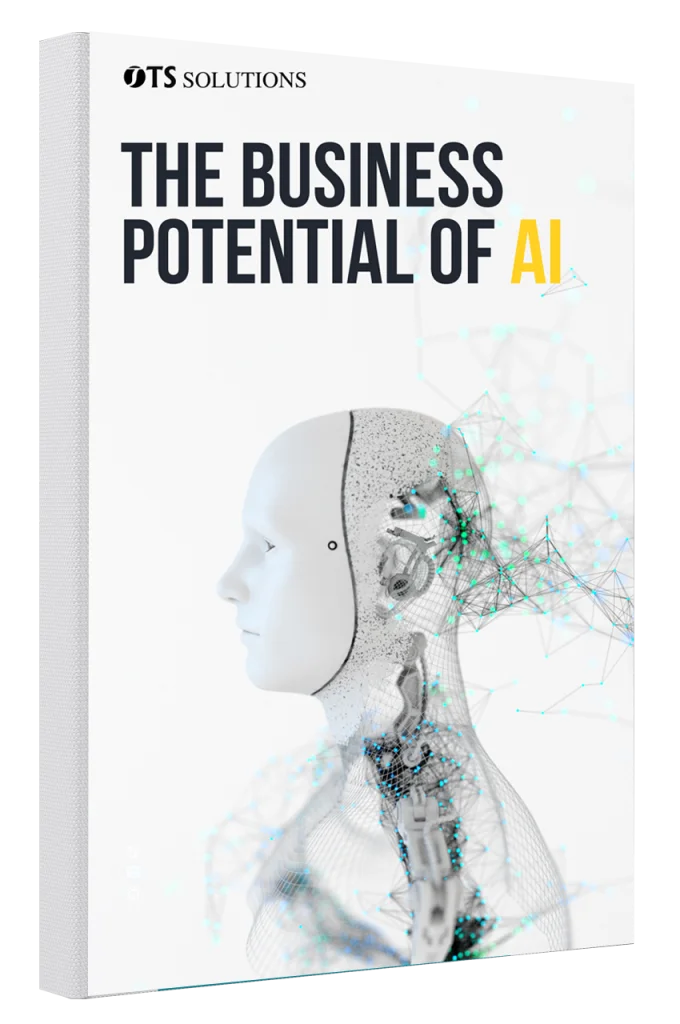How Industry 4.0 Changes Predictive Maintenance From Mobile Apps And What It Means For The Future ?
The fourth industrial revolution or Industry 4.0 has been transforming the manufacturing sector through the integration of advanced technologies such as artificial intelligence, the Internet of Things, and big data analytics. One of the critical areas that have benefited from these technological advancements is predictive maintenance. Predictive maintenance involves the use of data analytics to identify potential equipment failures before they occur, reducing downtime and costs associated with equipment repairs. In recent years, the development of mobile apps has provided a more convenient and efficient approach to predictive maintenance. This article explores how Industry 4.0 is changing predictive maintenance through mobile apps and what it means for the future.
Introduction to Industry 4.0 and Predictive Maintenance
Understanding Industry 4.0
Industry 4.0, also known as the fourth industrial revolution, refers to the integration of advanced digital transformation in various industries, including manufacturing, logistics, and supply chain management. The concept of Industry 4.0 aims to create a smart industry that is highly efficient, flexible, and connected.
What is Predictive Maintenance?
Predictive maintenance is a proactive maintenance approach that relies on advanced data analytics and predictive analytics to identify potential machinery failures before they occur. Predictive maintenance utilizes real-time monitoring and analysis of equipment data to forecast potential equipment failures and take corrective action to prevent downtime.
Advancements in Mobile Apps for Predictive Maintenance
Overview of Mobile Apps for Predictive Maintenance
Mobile apps have transformed the way maintenance professionals perform their work, and predictive maintenance is no exception. Predictive maintenance mobile apps allow technicians and maintenance personnel to monitor equipment and receive real-time notifications about potential issues.
Emerging Technologies in Mobile Apps for Predictive Maintenance
Emerging technologies such as artificial intelligence and machine learning are being integrated into predictive maintenance mobile apps to improve their effectiveness. These technologies allow mobile apps to learn and adapt to specific equipment conditions, further reducing the risk of equipment failures.
Benefits of Mobile Apps for Predictive Maintenance
Mobile apps for predictive maintenance offer a range of benefits, including improved efficiency, real-time monitoring, and better collaboration among maintenance teams. Additionally, these apps can help organizations save costs by reducing unplanned downtime, minimizing repair costs, and increasing the lifespan of the equipment.
Impact of Industry 4.0 on Predictive Maintenance
Industry 4.0 and Predictive Maintenance
Industry 4.0 is changing the way maintenance is performed. With the integration of smart devices, advanced analytics, and predictive maintenance mobile apps, maintenance professionals can operate more efficiently and effectively.
Revolutionizing Predictive Maintenance with Industry 4.0
Industry 4.0 is revolutionizing predictive maintenance by improving the accuracy and speed of data analysis, allowing maintenance professionals to better predict and prevent equipment failures.
Big Data Analytics and Industry 4.0 in Predictive Maintenance
Industry 4.0 is also enabling the use of big data in predictive maintenance. With the help of big data analytics, maintenance professionals can analyze vast amounts of equipment data to identify patterns and trends, which can inform maintenance decisions.
Benefits of Mobile Apps in Predictive Maintenance
Cost-Effectiveness of Mobile Apps in Predictive Maintenance
Mobile apps for predictive maintenance offer a cost-effective solution for organizations. By enabling real-time monitoring and analysis of equipment data, maintenance personnel can detect potential issues early on, reducing the likelihood of costly equipment failures.
Efficiency and Accuracy with Mobile Apps in Predictive Maintenance
Mobile apps for predictive maintenance improve the efficiency and accuracy of maintenance processes. Maintenance personnel can receive real-time notifications and access up-to-date equipment data to make informed maintenance decisions, resulting in more efficient and effective maintenance practices.
Improved Safety in Predictive Maintenance through Mobile Apps
Mobile apps for predictive maintenance can also improve safety for maintenance personnel. By enabling remote monitoring and maintenance, maintenance personnel can reduce the risk of injury and avoid potentially hazardous situations.
The Role of IoT in Predictive Maintenance
Introduction to IoT in Predictive Maintenance
Internet of Things (IoT) has revolutionized the way industry’s function, and predictive maintenance is no exception. IoT devices can be used to collect performance data from equipment and machinery. This data can then be analyzed using machine learning algorithms to predict when maintenance is required.
IoT and Machine Learning in Predictive Maintenance
IoT devices enable continuous monitoring of equipment, allowing for the collection of large data sets. This data is then analyzed using machine learning algorithms to detect patterns and predict when maintenance is required. Machine learning algorithms allow for more accurate predictions of equipment failure.
Benefits of IoT in Predictive Maintenance
The benefits of using IoT in predictive maintenance are numerous. By predicting maintenance requirements, equipment downtime can be minimized, and production schedules can be maintained. Furthermore, maintenance can be scheduled during non-peak hours, reducing overall downtime. The use of IoT in predictive maintenance also reduces the likelihood of unplanned maintenance, which can be costly due to emergency repairs and lost production time.
Challenges and Limitations of Mobile Apps in Predictive Maintenance
1. Security Challenges in Mobile Apps for Predictive Maintenance
The use of mobile apps in predictive maintenance introduces new security challenges. Mobile devices are vulnerable to cyber-attacks, and sensitive data related to equipment performance could be compromised. Careful consideration of security measures, such as encryption and secure data storage, is necessary when using mobile apps for predictive maintenance.
2. Data Privacy Challenges in Predictive Maintenance through Mobile Apps
Collecting data through mobile apps raises concerns about data privacy. Users may be hesitant to share personal information, such as location data, with app providers. It is essential to ensure that data collection is transparent and that users have control over what data is collected and how it is used.
3. Limitations of Mobile Apps in Predictive Maintenance
While mobile apps can be useful in predictive maintenance, they also have limitations. Mobile devices have limited processing power, which may be insufficient for processing large data sets. Furthermore, mobile devices may not be able to collect data from all equipment, limiting the scope of predictive maintenance.
Outlook of Predictive Maintenance with Industry 4.0 and Mobile Apps
Trends in Predictive Maintenance with Industry 4.0 and Mobile Apps
The integration of Industry 4.0 and mobile apps in predictive maintenance will continue to evolve. The use of IoT devices will become more prevalent, and machine learning algorithms will become more effective at detecting equipment failure. Mobile apps will become more user-friendly, allowing for easier data collection and analysis.
Impact of Predictive Maintenance on Business Operations
Predictive maintenance can have a significant impact on business operations. By reducing equipment downtime, production schedules can be maintained, and costs associated with emergency repairs can be minimized. Furthermore, predictive maintenance can improve overall equipment efficiency and reduce maintenance costs.
Cloud Computing and Mobile App Development
How cloud computing is changing the way mobile apps are developed
Cloud computing has revolutionized mobile app development. With cloud computing, mobile app developers can create apps faster and more efficiently. They can easily access cloud services and use them to build their apps without having to worry about building their infrastructure. Cloud computing provides increased flexibility, scalability, cost efficiency, and security for mobile app development. One of the most significant benefits of cloud computing for mobile app development is the ability to scale quickly. When developing a mobile app, businesses can use cloud-based services to quickly expand their computing resources as needed. This means they can accommodate high-traffic volumes without needing to build additional infrastructure.
Cloud computing also offers a cost-effective solution for businesses since they only pay for the resources they use. Additionally, cloud-based tools provide the flexibility for mobile app developers to work from anywhere, which in turn helps companies to attract and hire the best talent. With all the benefits of cloud computing, technology has transformed mobile app development and continues to be a vital platform for powering digital innovation.
Advantages of mobile cloud computing for mobile app development
Applications of mobile cloud computing have revolutionized the process of mobile application development. In the traditional method, mobile app developers had to buy expensive servers, storage devices, and other computing resources to build their apps. Cloud computing, on the other hand, provides a cost-effective and efficient alternative to this process as it allows mobile app developers to access powerful computing resources on demand in a pay-as-you-go model. This means that developers can save money as they only pay for the resources they consume, rather than investing in expensive infrastructure that may become obsolete in a few years.
Additionally, cloud computing enables developers to collaborate with their teams remotely, share resources, and increase their productivity, which makes mobile app development faster and more efficient. Overall, the benefits of cloud computing for mobile app development are undeniable, and this trend will continue to grow and impact the industry positively in the future.
Combining Industry 4.0 and Cloud Computing in Mobile App Development
Mobile cloud computing can be understood as an architectural approach that combines the processing power of mobile devices like smartphones or tablets with cloud-based resources. Moreover, GPMCC (general purpose MCC) and ASMCC (application-specific MCC) are two types of mobile cloud computing solutions that can help businesses to grow.
Combining Industry 4.0 and cloud computing in app development has revolutionized the way businesses operate. Industry 4.0 technologies like the Internet of Things (IoT) have enabled the collection of vast amounts of data, which can be processed and analyzed using cloud computing. With cloud computing, businesses can efficiently store, process, and retrieve data, ensuring the scalability and flexibility of their apps. Moreover, cloud computing has made it easier to collaborate and share data between team members, regardless of their location. This integration has created more opportunities for innovation and growth, and it is becoming an essential element in today’s digital landscape.
Also Read: How Cloud Computing Can Help Businesses? A Comprehensive Guide
The Impact of Industry 4.0 and Cloud Computing on Mobile App Development
1. Improved Mobile App Development Processes
Industry 4.0 and cloud computing have brought about greater automation and standardization in mobile app development processes. This has led to increased efficiency and faster development cycles, as well as a reduction in errors and bugs. Moreover, cloud services such as Amazon Web Services, Microsoft Azure, and Google Cloud have made it easier for developers to access the tools and resources they need to build and deploy their apps quickly.
2. Increased Efficiency and Productivity
By leveraging the agility of Industry 4.0 and the scalability of cloud computing, mobile app development teams can now work in a more collaborative and streamlined fashion, leading to greater efficiency and productivity. Cloud-based tools such as project management and collaboration platforms also help to improve communication and transparency across teams, reducing the likelihood of miscommunication and misunderstandings.
3. Enhanced Scalability and Flexibility
Industry 4.0 and cloud computing have made it possible for mobile app developers to create apps that are highly scalable and flexible, capable of handling substantial amounts of traffic and data. The use of cloud resources also allows app developers to quickly adapt to changing market demands and customer needs, providing a competitive advantage in the fast-paced mobile app industry.
Also Read: The Ultimate Guide to Cloud Computing: What Your Business Needs To Know
Future Trends and Opportunities for Industry 4.0 and Cloud Computing in Mobile App Development
The integration of Industry 4.0 and cloud computing in mobile app development is an ever-evolving field, with current trends and opportunities emerging all the time. Here are a few trends to watch out for.
1. Artificial Intelligence and Machine Learning
As AI and machine learning continue to advance, they will undoubtedly play a larger role in mobile app development. They can be used to automate processes, create personalized experiences for users, and provide real-time insights.
2. Edge Computing
Edge computing and IoT (Internet of Things) technologies are becoming increasingly important in mobile app development. They can help improve response times and reduce latency, as well as enable offline functionality and real-time data processing.
3. Blockchain Technology
Blockchain technology has the potential to revolutionize mobile app development by enabling secure, decentralized transactions. As this technology continues to mature, we can expect to see more extensive use of it in mobile app development. In conclusion, the combination of Industry 4.0 and cloud computing provides a powerful platform for mobile app development. The benefits of scalability, flexibility, and cost-effectiveness are too significant to ignore. However, challenges such as integration and interoperability, technical expertise, and data security must be addressed to fully reap the benefits of this technology.
By adopting best practices such as collaboration, agile methodologies, and cloud-native architectures, companies can overcome these challenges and create mobile apps that align with their business goals. The future trends of artificial intelligence, edge computing, and blockchain technology offer even more exciting possibilities for mobile app development. Therefore, companies must embrace this technology and harness its potential for the betterment of their businesses.
How can OTS leverage Industry 4.0 and Cloud Computing in your Mobile App Development Projects?
OTS Solutions is a leading Information Technology solutions provider that enables industries to leverage Industry 4.0 and cloud computing for better performance and efficiency. With deep technical expertise and industry experience, OTS Solutions provides customized solutions to help businesses improve their processes by using innovative technologies and implementing best practices. By integrating Industry 4.0 technologies such as IoT, AI, and robotics, OTS Solutions helps achieve process automation and enables businesses to capture and analyze data in real-time. The deployment of cloud computing and edge computing systems further optimizes processes and allows businesses to access data and services on the go. As a result, OTS Solutions delivers efficient, scalable, and sustainable solutions that help industries stay ahead of the competition.
Closing Thoughts on the Future of Predictive Maintenance with Industry 4.0 and Mobile Apps
The future of predictive maintenance with Industry 4.0 and mobile apps looks promising. We can monitor Equipment performance at optimal levels by leveraging the power of IoT devices and machine learning algorithms.
Mobile apps will continue to play an essential role in data collection and analysis, allowing businesses to make informed decisions about maintenance schedules and equipment efficiency. Industry 4.0 is reshaping the future of manufacturing, and predictive maintenance is at the forefront of this change. The increasing adoption of mobile apps has made predictive maintenance even more accessible and efficient, improving equipment uptime, reducing maintenance costs, and enhancing safety. As businesses continue to leverage emerging technologies, the future of predictive maintenance looks even more promising. By embracing Industry 4.0 and digital transformation in mobile app development, organizations can stay ahead of the competition and remain profitable in a rapidly changing business environment.
Conclusion:
Companies adopting Industry 4.0 and cloud computing have more scalable and reliable applications. In this blog, we listed how Industry 4.0 and cloud computing along with other technologies such as IoT, edge computing, etc. are transforming businesses. You can contact us if you are looking for the best industry 4.0 consulting company.
Ready to embrace Industry 4.0 transformation?
Discover how our Industry 4.0 services can revolutionize your predictive maintenance approach and shape the future of your mobile apps.








